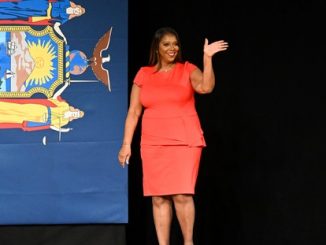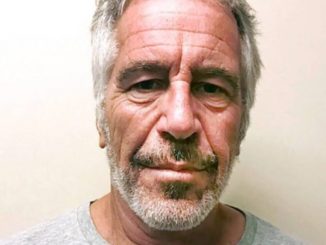
| Published July 22, 2025
As pressure mounts on the U.S. Justice Department to deliver transparency in the long-shadowed Jeffrey Epstein saga, a new twist emerges: Ghislaine Maxwell, the convicted sex trafficker and Epstein’s longtime associate, is now in talks with federal prosecutors—and says she’s ready to testify truthfully. With the public still demanding answers and political factions pushing for deeper investigations, Maxwell’s willingness to speak could mark a dramatic turning point in a case many believed had already gone cold. But is this a genuine step toward justice—or just another carefully timed move in a high-stakes legal chess game?
🕵️ DOJ Reaches Out to Maxwell
In a move that could reignite one of the most controversial criminal cases of the 21st century, the U.S. Department of Justice has formally reached out to Ghislaine Maxwell, inviting her to speak directly with federal prosecutors. Now two years into her 20-year prison sentence for sex trafficking and conspiracy charges, Maxwell has remained largely silent—until now.
According to Reuters, DOJ officials have approached Maxwell through her legal team, signaling that they are finally ready to hear what she knows about Epstein’s inner circle. The request follows mounting public and political pressure for greater accountability after the department earlier this year claimed that there was “no client list” and no prosecutable evidence involving other high-profile individuals connected to Epstein.
Maxwell’s attorney, David Oscar Markus, confirmed that discussions with the Justice Department are underway and that his client is “willing to testify truthfully” if and when the opportunity comes. That subtle phrasing—truthfully—has stirred speculation over whether Maxwell intends to confirm what many have long suspected: that Epstein’s operation extended well beyond the pair’s known crimes and into elite circles across politics, finance, and entertainment.
For the DOJ, this outreach serves two purposes. On one hand, it offers a rare opportunity to obtain potentially explosive testimony from the one person who knows the full scope of Epstein’s dealings. On the other, it acts as a public gesture meant to restore some credibility to the department after being criticized for closing the so-called Epstein Files without pursuing new prosecutions.
While the Justice Department has not commented on specific topics they wish to cover with Maxwell, sources familiar with the inquiry say they’re focused on unindicted co-conspirators, possible trafficking networks, and financial enablers who may have supported Epstein’s activities behind the scenes.
The timing is critical. The Maxwell interview comes just as the Supreme Court prepares to review whether her appeal—based on the controversial 2007 Epstein non-prosecution agreement—should be heard at all. It raises the possibility that Maxwell may be seeking cooperation in hopes of reducing her sentence or gaining legal leverage in her appeal.
Whether this is a sincere attempt to come clean—or a calculated move to win leniency—remains to be seen. But one thing is clear: Maxwell is no longer staying silent.
🧩 Broader Context: Epstein Files & Political Fallout
To understand the significance of the Justice Department’s renewed interest in Ghislaine Maxwell, one must look at the political and public firestorm that’s continued to smolder since Jeffrey Epstein’s death in 2019. Despite his apparent suicide inside a Manhattan jail cell, the scandal he left behind has refused to die—fueling years of speculation, online sleuthing, and bipartisan calls for accountability that still haven’t been satisfied.
Earlier this year, the DOJ officially closed the so-called “Epstein Files,” concluding that there was no credible evidence to prosecute additional individuals connected to his sex trafficking operation. A joint statement from the FBI and the Justice Department insisted that Epstein acted largely independently, and that no “client list” existed—an assertion that immediately provoked outrage.
Critics across the political spectrum—especially among conservative and populist lawmakers—slammed the move as a cover-up. Social media lit up with renewed accusations that the DOJ was shielding elites, while House Republicans began floating the idea of subpoenaing Ghislaine Maxwell to testify before Congress. Many saw the agency’s decision not as closure, but as an open insult to the public’s right to know.
Adding fuel to the fire, the DOJ’s own Inspector General acknowledged failures in monitoring Epstein during his pre-trial detention—citing broken security cameras and inattentive jail staff as contributing factors to his death. Those failures deepened public distrust and gave rise to a troubling question: if Epstein’s death was a failure of oversight, could his case have also been a failure of justice?
Now, with Maxwell back in the spotlight, the DOJ appears to be walking a delicate line. On one hand, it’s trying to restore faith in a process many Americans believe has been manipulated by powerful interests. On the other, it’s opening the door to potentially explosive revelations that could implicate figures in government, finance, and international diplomacy.
Meanwhile, Maxwell’s own legal battles continue. She has appealed her conviction to the Supreme Court, arguing that the 2007 non-prosecution agreement Epstein secured in Florida should have applied to her as well. The DOJ, under current Attorney General Pam Bondi, has asked the high court to reject her appeal—declaring her a key participant in the sex trafficking conspiracy and undeserving of immunity.
What happens next may depend on how much Maxwell is truly willing to say—and whether the government has the appetite to pursue new leads, even if they lead to the doorstep of people in positions of great power.
is not just about justice for Epstein’s victims anymore. It’s about the credibility of America’s justice system—and whether truth can survive the gravitational pull of influence, secrecy, and politics.
🔍 Implications: What Maxwell’s Testimony Could Unleash
If Ghislaine Maxwell follows through on her pledge to “testify truthfully,” the ripple effects could be enormous—potentially rewriting the legacy of the Epstein scandal and placing powerful institutions under new scrutiny.
⚖️ Legal Ramifications
Maxwell’s testimony could breathe new life into dormant investigations. If she names individuals who engaged in or facilitated criminal behavior, the DOJ may be compelled to open—or reopen—cases. That could lead to indictments, civil lawsuits, or even international legal cooperation if foreign nationals are implicated.
Her cooperation might also serve as a bargaining chip in her ongoing appeal. While the Supreme Court has not yet ruled on whether it will hear her case, prosecutors may use her testimony to either negotiate reduced sentencing or oppose leniency—depending on the value and verifiability of her claims.
🏛️ Political Fallout
Maxwell’s revelations could place elected officials, business moguls, and even former government leaders under renewed scrutiny. If any names tied to Capitol Hill or presidential administrations emerge, both parties could be forced into damage control. Congressional Republicans, in particular, have been vocal about demanding accountability. Should Maxwell’s testimony reveal political bias in how the Epstein files were handled—or implicate DOJ officials—it could spark hearings or even investigations into misconduct or obstruction.
On the flip side, if her statements appear vague or lack hard evidence, the political right may claim her testimony is being filtered or suppressed—further eroding trust in federal institutions.
🌐 Social & Cultural Shockwaves
Public reaction could be explosive. For years, survivors and advocates have insisted that the Epstein case was never fully prosecuted. If Maxwell confirms suspicions that others were involved—and especially if those people remain untouched by the law—it could fuel broader conversations about elite privilege, legal double standards, and institutional rot.
Conversely, if Maxwell’s testimony names names and results in high-profile consequences, it could mark a rare moment of institutional accountability—perhaps even restoring some faith in the justice system. But only if the DOJ acts on it.
🤝 Pressure on the DOJ and FBI
The DOJ’s credibility is already in a fragile state after claiming there was “no client list” earlier this year. If Maxwell provides compelling leads that contradict that assertion, the agency will face tough questions about why those leads weren’t pursued sooner. It could also open the DOJ to accusations of a cover-up or politically motivated selective prosecution.
This moment presents a narrow opportunity for the DOJ to regain trust—but it hinges on their willingness to act decisively and transparently.
 Overall Takeaway: A Moment of Truth—or Another Missed Chance?
Overall Takeaway: A Moment of Truth—or Another Missed Chance?
As Ghislaine Maxwell signals a willingness to talk, the Justice Department stands at a pivotal crossroads. This isn’t just about tying up loose ends in the Epstein case—it’s about confronting whether America’s justice system is capable of holding the powerful accountable.
Maxwell’s cooperation could finally lift the veil on what really happened behind closed doors—names, patterns, protections, and cover-ups. But only if the DOJ is prepared to listen, investigate, and act—without fear or favor.
For the victims who have waited years for answers, for the public demanding transparency, and for a justice system on trial in the court of public opinion—what happens next will either restore faith or confirm long-held doubts.
The question now is simple: will this be a breakthrough for truth, or just another high-profile performance that ends in silence?





Be the first to comment